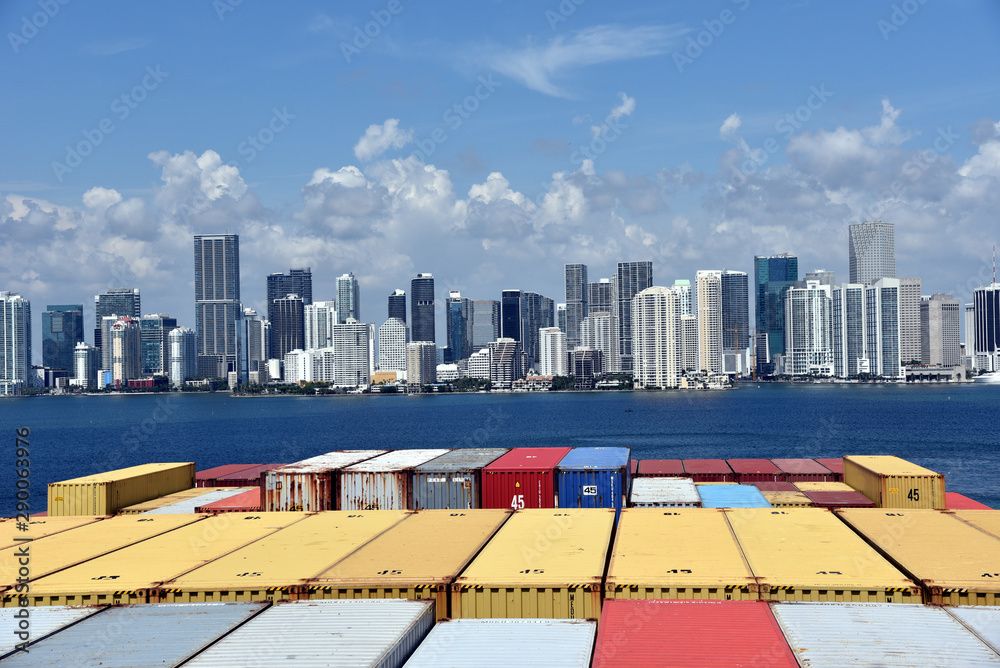Hospitals, medical groups express anxiety over tariffs
Healthcare leaders say they’re concerned about the prospect of higher costs on medical devices as President Trump unveils new tariffs. Providers say it’s difficult to pass on the costs.
President Trump is pushing forward with tariffs on most of America’s trading partners, and healthcare leaders have expressed anxiety about the fallout.
Healthcare leaders say they're worried about the impact of higher taxes on imports, since providers rely on medical supplies from foreign suppliers. (Image: ©Mariusz - stock.adobe.com)

The new tariffs make an exception for pharmaceuticals, but there’s no such provision for medical devices, or components of healthcare devices produced overseas. Trump announced a base tax of 10% on imports and imposed higher tax increases on some imports, including China (34%), India (26%), and the European Union (20%), among others.
Some healthcare leaders said there could be a place for tariffs to spur more domestic production of medical supplies, but they fear that the administration’s approach could add more cost pressures on providers.
Akin Demehin, vice president of quality and patient safety policy for the American Hospital Association, said hospitals want to see more healthcare supplies produced domestically. But Demehin said, “This goal must be balanced with avoiding disruptions to patient care that often depend on the availability of internationally sourced devices and treatments.”
Hospitals are concerned about interruptions in the supply chain. But hospitals rely on foreign imports for many important supplies and have been worried about the impact of tariffs under the Trump administration.
“We appreciate that the Administration has exempted pharmaceuticals from reciprocal tariffs,” Demehin said in a statement. “At the same time, we recommend that the Administration consider tariff exemptions for medical devices. It is especially critical to have exceptions for medical products already in shortage and for which production in countries subject to the increased tariffs supply a significant part of the U.S. market.”
Trump’s tariffs could pose headwinds for the entire healthcare system, said Ash Shehata, leader of KPMG’s U.S. Healthcare Sector.
"Tariffs aren’t just price hikes—they’re a pressure test for the healthcare supply chain,” Shehata said. “Medical device costs have been rising for years, and tariffs add to that. Healthcare businesses now face a tough choice: absorb the costs, pass them on, or overhaul how they source and manufacture.”
“The immediate impact is clear, but the real question is whether the industry can continue absorbing this volatility, or if we're at a tipping point that drives reshoring and builds more resilient, long-term supply chains,” Shehata said.
Tariffs could pose added hardships on physicians and medical groups, said Anders Gilberg, senior vice president of government affairs at the Medical Group Management Association.
“From basic supplies to life-saving medical devices, physician practices rely on a global supply chain, yet their ability to pass on increased costs is almost non-existent,” Gilberg said in a statement. “Practice expense calculations in fee schedules within commercial contracts and government programs such as Medicare and Medicaid are already fixed and won't account for any cost increases resulting from new tariffs or taxes.”
Medical practices have been dealing with cuts in Medicare payments to physicians, and Congress didn’t avert reductions in reimbursements in the recent spending package. Gilberg said the tariffs pose another problem practices don’t need.
“While there may be longer-term goals in the Administration's trade strategy, if implemented as proposed, the potential consequences of tariff-induced cost increases may be severe, especially for medical practices struggling to keep their doors open in an already challenging healthcare environment,” Gilberg said.
Soumi Saha, senior vice president of government affairs of Premier Inc., has said “targeted and thoughtful” tariffs could be elements of a successful strategy to produce more healthcare supplies domestically. But she voiced concerns with the administration’s approach on tariffs.
“They cannot live in a vacuum, lest they become just another cost without real impact,” Saha said in a statement. “Premier believes that tariffs need to be put to work, funding innovation that ensures long-term stability and a stronger, more resilient U.S. supply chain.”
Healthcare leaders generally support efforts to produce more supplies in the U.S., but they also point out that they do obtain some critical supplies from foreign manufacturers.
Chip Kahn, president and CEO of the Federation of American Hospitals, told Chief Healthcare Executive® in a February interview that “there’s a lot of nervousness” among hospital leaders about the impact of tariffs.
“There are just certain products and supplies that are critical to hospital care that are not going to get produced in the United States,” he says, adding, “We have to have a supply chain that goes to Asia.”
Telehealth faces a looming deadline in Washington | Healthy Bottom Line podcast
February 12th 2025Once again, the clock is ticking on waivers for telemedicine and hospital-at-home programs. Kyle Zebley of the American Telemedicine Association talks about the push on Congress and the White House.